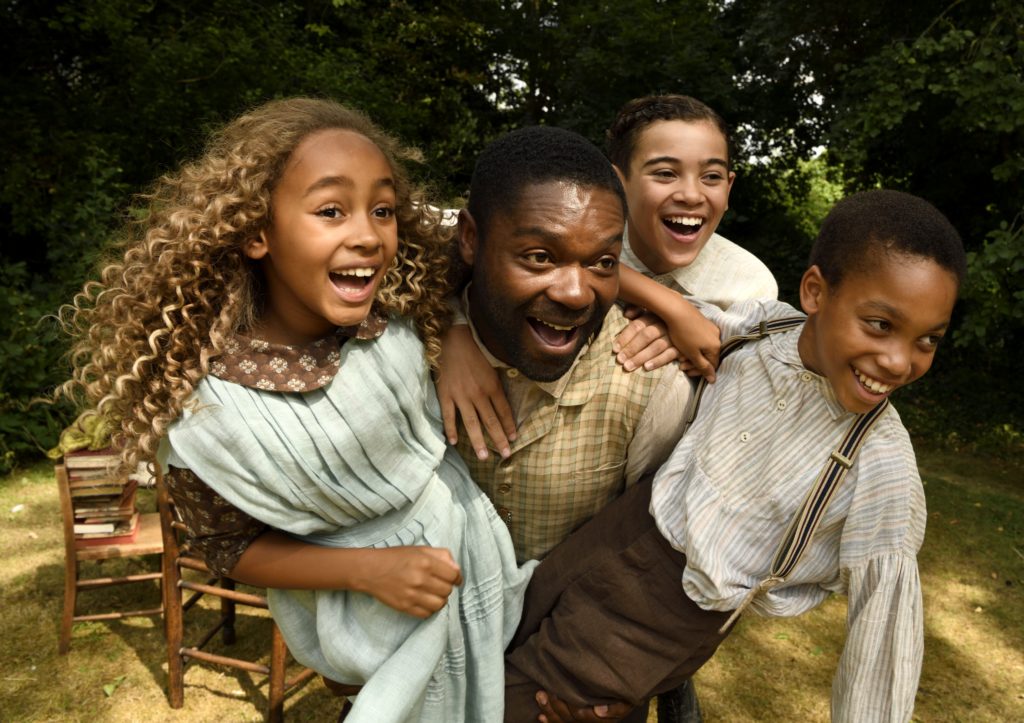Brenda Chapman began her career at Walt Disney Feature Animation, working on films that include the Academy Award–nominated “Beauty and the Beast” and “The Lion King,” for which she won an Annie Award. She helped launch DreamWorks Animation, becoming the first woman to direct an animated feature for a major Hollywood Studio with the Oscar-winning “The Prince of Egypt.” Chapman then joined Pixar Animation Studios, where she created, wrote, and directed “Brave,” becoming the first woman to win an Oscar, BAFTA, and Golden Globe for Best Animated Feature Film.
“Come Away” will premiere at the 2020 Sundance Film Festival on January 24.
W&H: Describe the film for us in your own words.
BC: “Come Away” is a “what if” story: What if Alice in Wonderland and Peter Pan had been sister and brother before their famous stories began? They live an idyllic childhood until tragedy strikes their family, and they must rely on their imaginations to cope.
W&H: What drew you to this story?
BC: I loved the inventiveness of scriptwriter Marissa Goodhill’s take on combining these two beloved stories, making it something original unto itself.
W&H: What do you want people to think about when they are leaving the theater?
BC: I’d like them to think about the power of our imaginations — especially children’s. I’d like them to think about how much we need that in today’s world.
I’d also like them to maybe consider limiting the time their children spend on their tiny screens, and encouraging them to create their own games, worlds, characters, and stories without being connected to anything but their own imaginations.
W&H: What was the biggest challenge in making the film?
BC: Honestly, the biggest challenge was the location difference between making an animated film and a live-action film. Other than the occasional research or voice recording trips, I was always in one location every day while making the animated films I’ve worked on. Being on location in the UK, away from my family for months on end, was very tough.
W&H: How did you get your film funded? Share some insights into how you got the film made.
Based on the recognizability of the subject matter, and once we had our lead actors [Angelina Jolie and David Oyelowo] on-board, we found a producing partner who was willing to fund the film.
W&H: What inspired you to become a filmmaker?
BC: I loved to draw, and I loved to tell stories with my drawings. As a child, Walt Disney and Warner Bros cartoons, among others, inspired me to pursue a career in animation. I discovered how much I loved telling stories through film — whether that be animation, live-action, or both combined.
W&H: What’s the best and worst advice you’ve ever received?
BC: The best advice: Follow the Golden Rule as you work your way up the ladder — you may still get bludgeoned along the way by those who haven’t a clue what the Golden Rule is or means, but those you have treated well will help you stand back up. Also, take opportunities as they come, and be sure to ask for what you want. Don’t wait for it to be offered: the worst they can say is no.
The worst advice: Be quiet and keep your head down.
W&H: What advice do you have for other female directors?
BC: I would advise them to follow the above best advice, and to ignore the above worst advice!
W&H: Name your favorite woman-directed film and why.
BC: “Whale Rider,” directed by Niki Caro. Everything about it was perfect — the magic, the characters, and the emotion of the story were brilliantly balanced, and the cinematography was stunningly beautiful. And it was wonderfully feminist in a very honestly feminine way, which can be so hard to pull off.
The main character wasn’t a “warrior princess” — she was just herself, a determined, vulnerable, and kind young girl who craved the love and acceptance of her grandfather and overcame the odds by staying true to herself without giving in to her grandfather’s or her society’s limiting expectations. I love that film!
W&H: What differences have you noticed in the industry since the #MeToo and #TimesUp movements launched?
BC: There is certainly a lot more press about women in the industry. I have received more calls, as have my female friends and colleagues in animation, for opportunities in both animation and live-action.
While it seems to be getting a bit better, the pace still feels a bit slow for many women in the forward progression of “the big three”: opportunities actually coming to fruition, pay parity, and recognition.







